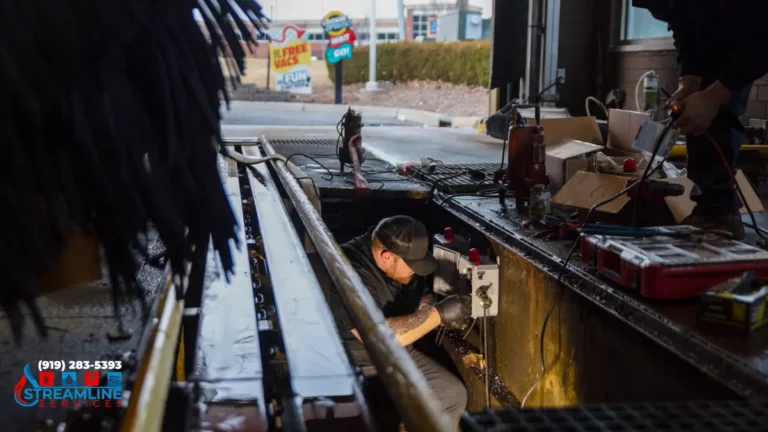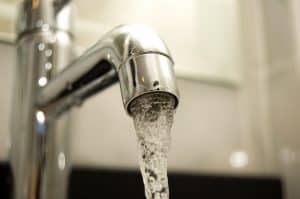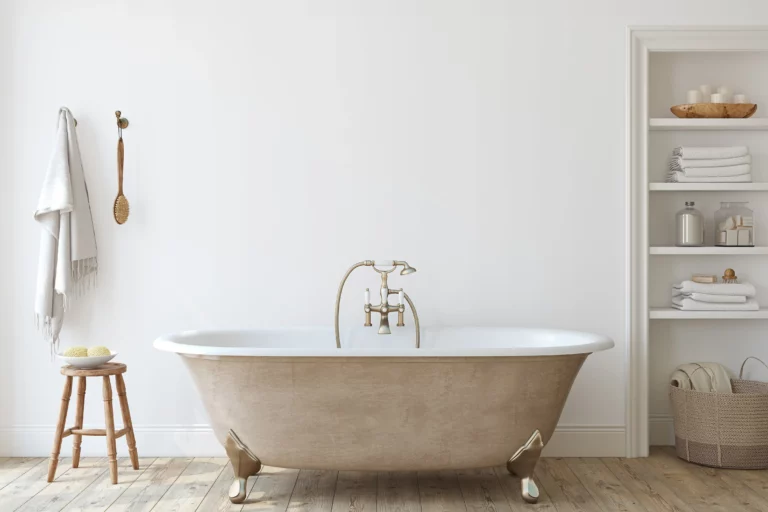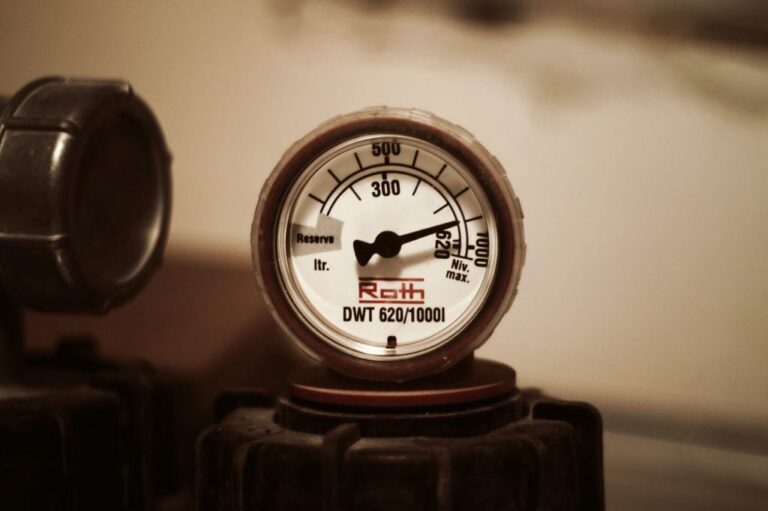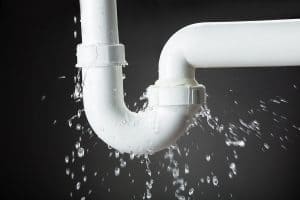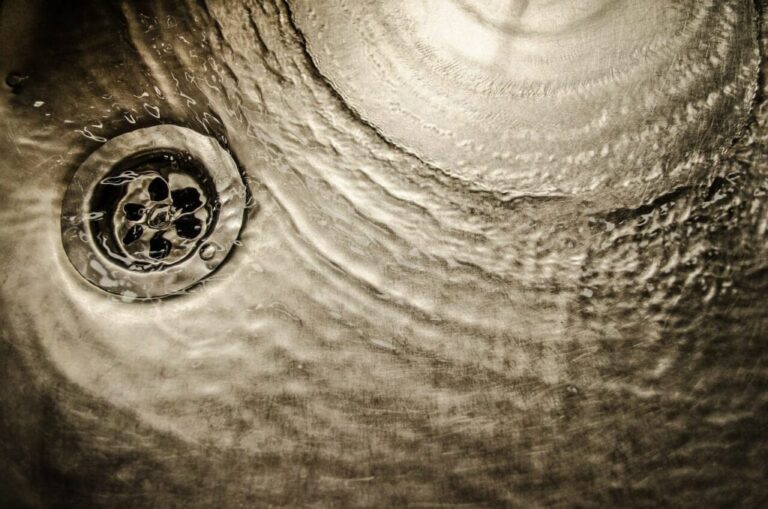Plumbing Maintenance and Prevention Tips: A Comprehensive Guide for Raleigh Homeowners
Key Takeaways
Water Savings
Water savings reach 20-60% with modern low-flow toilets, showerheads, and faucets installed properly
Raleigh’s Clay-Heavy Soil
Raleigh’s clay-heavy soil makes water conservation crucial for preventing foundation issues and managing stormwater runoff
Rebate Programs
Duke Energy rebates and City of Raleigh programs offer financial incentives for water-efficient fixture upgrades
Professional Installation
Professional installation ensures optimal performance and prevents common issues like reduced water pressure or inadequate flushing
Hard Water Compatibility
Triangle region’s hard water requires specific low-flow models designed for mineral-rich water conditions
Understanding Low-Flow Fixtures in Raleigh’s Environment
What Makes Low-Flow Fixtures Essential
Low-flow fixtures use advanced engineering to maintain performance while reducing water consumption. Modern designs incorporate pressure-compensating technology, aerators, and precision-engineered flow paths that deliver satisfying performance with significantly less water usage.
Raleigh’s unique geographical position creates specific water challenges. Our region sits on the Piedmont plateau, where clay soils and seasonal rainfall patterns affect both water availability and home foundations. When homeowners reduce indoor water usage through low-flow fixtures, they contribute to broader conservation efforts while managing their property’s water dynamics.
Types of Low-Flow Fixtures for Triangle Homes
Low-Flow Toilets Contemporary models use 1.28 gallons per flush compared to older toilets consuming 3.5-7 gallons. Dual-flush options provide 0.8 gallons for liquid waste and 1.28 gallons for solid waste, maximizing efficiency without sacrificing functionality.
Water-Efficient Showerheads Modern showerheads deliver 1.5-2.0 gallons per minute while maintaining strong water pressure through innovative spray patterns and air injection technology. Raleigh’s hard water requires models with easy-clean nozzles and mineral-resistant finishes.
Low-Flow Faucets and Aerators Kitchen and bathroom faucets equipped with flow restrictors and aerators reduce consumption to 1.0-1.5 gallons per minute. Motion sensors and automatic shut-offs provide additional water savings for busy households.
Raleigh-Specific Benefits and Considerations
The Environmental Protection Agency estimates that WaterSense-labeled fixtures save the average family 700 gallons annually. For Raleigh homeowners, this translates to meaningful savings on water bills while supporting the city’s long-term sustainability goals.
Triangle-area homes built before 1992 typically contain older fixtures consuming excessive water. Clay soils common throughout Raleigh expand and contract with moisture changes, making consistent water management crucial for foundation stability. Low-flow fixtures help maintain optimal soil moisture levels around your home.
Local water treatment facilities benefit when residents reduce consumption. Wake County’s population growth strains existing infrastructure, making conservation efforts increasingly important for maintaining reliable service throughout our expanding communities.
Installation Best Practices for Triangle Homes
Professional installation ensures low-flow fixtures perform optimally in Raleigh’s specific conditions. Hard water minerals can affect aerators and flow restrictors, requiring proper selection and periodic maintenance. Older homes may need pressure adjustments or plumbing modifications to accommodate new fixtures effectively.
Water pressure variations throughout the Triangle region require careful fixture selection. Some neighborhoods experience higher pressure that enhances low-flow performance, while others need pressure-boosting systems or specific models designed for lower pressure conditions.
Making the Switch: What Raleigh Homeowners Should Expect
🚿 Drain Maintenance
Drain maintenance prevents the majority of plumbing emergencies. Install drain screens in all sinks and showers to catch hair and debris before they enter the drainage system. Clean these screens weekly to maintain effectiveness.
Avoid pouring grease, oil, or food scraps down kitchen drains. These substances solidify in pipes and create stubborn blockages. Instead, dispose of grease in containers and throw food scraps in the trash or compost.
Use enzyme-based drain cleaners monthly to break down organic matter naturally. These products maintain drain flow without damaging pipes or creating environmental concerns. Pour the cleaner down drains before bedtime to allow extended contact time.
🛠️ Fixture Care
Fixture maintenance extends equipment life and prevents water waste. Clean faucet aerators monthly to remove mineral deposits that restrict water flow. Soak aerators in white vinegar to dissolve calcium and lime buildup effectively.
Check for toilet repairs quarterly for proper operation. Adjust the chain length if the flapper doesn’t seat properly. Replace worn flappers that allow water to leak from the tank into the bowl continuously.
Inspect caulking around tubs, showers, and sinks annually. Remove old caulk and apply fresh sealant to prevent water damage to surrounding structures. Proper caulking protects against mold growth and structural damage.
🔎 Leak Detection
Early leak detection prevents water damage and reduces utility costs. Check your water meter before and after a two-hour period when no water is used. If the meter reading changes, you have a leak that requires investigation.
Install water leak detectors near water heaters, washing machines, and under sinks. These devices alert you to leaks before they cause significant damage. Smart leak detectors can send notifications to your phone when problems occur.
Monitor your water bill for unexplained increases that might indicate hidden leaks. A sudden spike in usage often signals a problem that requires immediate attention. Address leaks promptly to prevent costly water damage.
⚡ Our Immediate Response and Availability
At Streamline Services, we respond within hours, not days. Our immediate availability prevents minor issues from becoming major disasters that require extensive repairs.
🧰 Our Proper Equipment and Expertise
Our emergency plumbers carry specialized tools and replacement parts for common urgent repairs. This preparation enables efficient resolution without multiple trips or delayed repairs.
✅ Our Safety and Code Compliance
Our professional plumbers ensure all emergency repairs meet safety standards and local building codes. This compliance protects homeowners from liability and ensures long-term system reliability.
🚿 Transitioning to Low-Flow Fixtures
Transitioning to low-flow fixtures involves strategic planning and professional expertise. Start with high-usage areas like master bathrooms and kitchens where water savings create the most significant impact. Gradual replacement allows homeowners to spread costs while immediately beginning to see utility bill reductions.
Quality matters significantly with water-efficient fixtures. Premium models last longer and maintain consistent performance despite Raleigh’s mineral-rich water. Professional installation prevents common issues like improper sealing, inadequate water pressure, or poor flushing performance that can frustrate homeowners and reduce water savings.
Frequently Asked Questions
🚨 What qualifies as a plumbing emergency?
Plumbing emergencies include burst pipes, gas leaks, sewer backups, and water heater failures that pose immediate safety risks or property damage.
⏱️ How quickly does Streamline Services respond to emergency calls in Raleigh?
At Streamline Services, we typically respond within 1–2 hours, depending on location and current emergency call volume throughout the Triangle region.
💲 Are Streamline Services emergency plumbing calls more expensive than regular appointments?
Emergency plumbing services cost more than regular appointments due to after-hours availability and immediate response requirements.
🛑 What should I do while waiting for Streamline Services emergency plumbing help?
Turn off water supply to affected areas, avoid using electrical appliances near water, and document damage for insurance purposes.
📅 Does Streamline Services work on holidays and weekends?
Yes, we operate 24/7, including holidays, weekends, and overnight hours for urgent residential plumbing situations.
🧑🔧 Can Streamline Services handle all types of residential plumbing emergencies?
Our qualified emergency plumbers service residential properties with specialized equipment for various home plumbing systems and emergency situations.
🚽 Do low-flow toilets flush effectively with Raleigh’s hard water?
Modern low-flow toilets feature enhanced flushing systems that work effectively with hard water conditions common throughout the Triangle region.
💧 How much money do low-flow fixtures save on monthly water bills?
Raleigh homeowners typically save $100-300 annually on water bills after installing complete low-flow fixture systems throughout their homes.
🔧 Can existing plumbing handle low-flow fixture installation?
Most Triangle-area homes accommodate low-flow fixtures without major plumbing modifications, though professional assessment ensures compatibility and optimal performance.
🧼 How often do low-flow fixture aerators need cleaning in hard water areas?
Triangle-area homeowners should clean aerators and flow restrictors every 3-6 months to maintain optimal performance despite mineral buildup from hard water.
🌿 Why are low-flow fixtures a smart investment for Raleigh homeowners?
Low-flow fixtures represent smart investments for Raleigh homeowners seeking reduced utility costs and environmental responsibility. These water-efficient solutions address our region’s specific challenges while delivering reliable performance and long-term value. Professional installation and proper fixture selection ensure optimal results that benefit both your household budget and Triangle-area water resources. Contact Streamline Services to explore how low-flow fixtures can transform your home’s efficiency and environmental impact.
Conclusion
Founded in 2001, Streamline Services specializes in plumbing, electrical, heating, and cooling solutions across the Triangle region, including Raleigh, Durham, and Chapel Hill. Under Bob’s leadership, the company has built a reputation for reliability, professionalism, and community engagement. As a licensed contractor, Bob holds North Carolina plumbing license #23908 ensuring that Streamline Services meets the highest industry standards. Beyond his role at Streamline Services, Bob is actively involved in the Plumbing-Heating-Cooling Contractors (PHCC) of North Carolina. He serves as the President of the Triangle Chapter and member of the Board of Directors for North Carolina, where he collaborates with industry peers to promote education, safety, and advocacy within the trade. phccnc.com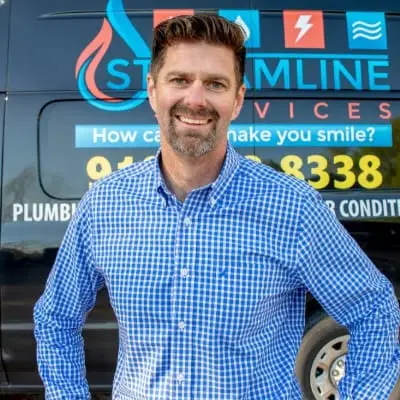
Written by
Bob Sweet
Bob Sweet is the President and Owner of Streamline Services, a fifth-generation, family-owned company based in Durham, North Carolina. Founded in 2001, Streamline Services specializes in plumbing, electrical, heating, and cooling solutions across the Triangle region, including Raleigh, Durham, and Chapel Hill. Under Bob’s leadership, the company has built a reputation for reliability, professionalism, and community engagement. As a licensed contractor, Bob holds North Carolina plumbing license #23908 ensuring that Streamline Services meets the highest industry standards.


